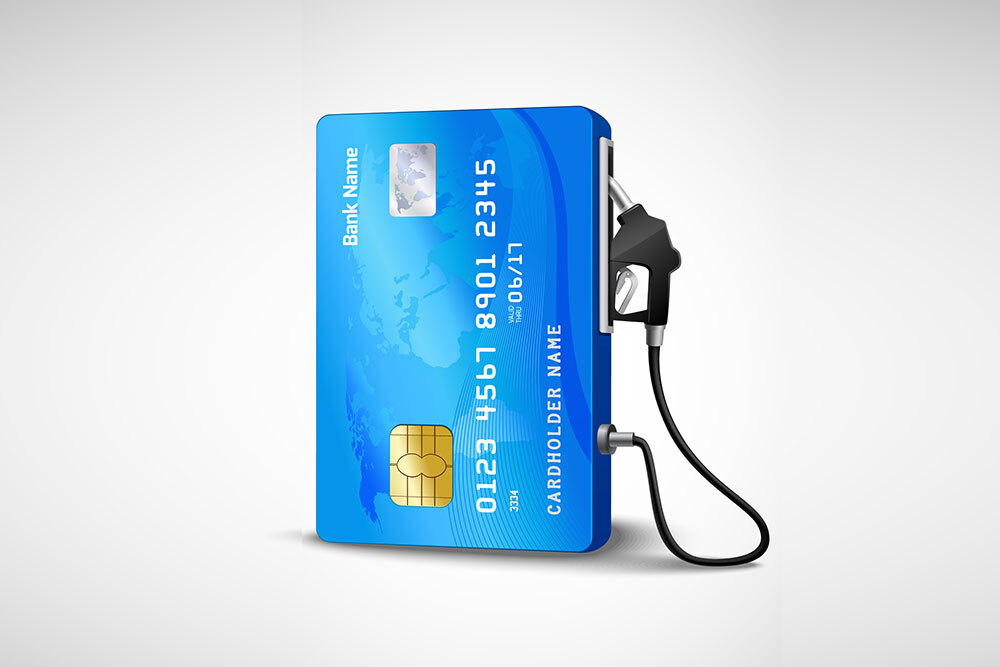

Get salary accounts for your team See benefits



Table of Contents
ToggleIf you’re interested in a credit card but have a low credit score, you can consider getting an FD credit card. This type of secured credit card is backed by a fixed deposit you hold with a financial institution. FD credit cards have gained popularity recently because they are easy to access and come with low-interest rates. Typically, you can receive a credit limit of 70-90% of your FD amount. Additionally, your fixed deposit will continue to earn interest as expected. The following sections will explain how a credit card backed by an FD works.
A credit card backed by a fixed deposit (FD) is a secured credit card option for FD holders. To qualify, you’ll need a minimum FD amount, typically at least ₹5,000, though it’s recommended to have ₹50,000 or more for a higher credit limit. The credit limit on these cards usually ranges from 70% to 90% of your FD amount.
You should consider a credit card against your fixed deposit if you:
As mentioned earlier; to get a credit card backed by a fixed deposit (FD), you’ll need to open an FD account with the bank. The money you deposit in the FD acts as security for the credit card. There’s often a minimum deposit amount required.
A credit card linked to an FD works just like any regular credit card. You can use it for shopping, paying bills, and other purchases. The credit limit determines how much you can spend, and you need to pay off the balance each month.
Credit cards backed by FDs typically have lower interest rates compared to regular credit cards because the FD serves as a safety net for the bank. If you can’t make your credit card payments, the bank can use the money from your FD to cover the debt.
These cards can help people who have little or no credit history. By making payments on time, you can start to build a good credit score. This will allow you to get unsecured credit cards in the future.
Getting approved for an FD-backed credit card is often easier than a regular credit card because the bank has less risk. This is a good choice for people who have been turned down for other credit cards.
These credit cards are linked to the fixed deposit, meaning you can’t withdraw the money early unless you close the credit card or the bank releases the hold on the FD.
Fixed deposits are a secure investment in India, providing good returns while keeping your money safe. An FD-backed credit card offers a risk-free borrowing option.
When you get a credit card against a fixed deposit (FD), no extra paperwork is needed since you already have an existing relationship with the bank. This simplifies the application process significantly.
The credit limit on an FD-backed card typically depends on the amount of the FD. Most banks offer 70-90% of the FD amount as the credit limit.
In addition to the security of an FD-backed credit card, you also enjoy the usual benefits of a regular credit card. This includes earning reward points, gaining access to airport lounges, receiving cashback offers, and more.
Even after securing a credit card against your FD, you continue to earn interest on your fixed deposit. This allows you to benefit from both the interest income and the credit facility simultaneously.
The fixed deposit (FD) amount required to obtain a credit card typically ranges from ₹5,000 to ₹20,000, making it an accessible option for many individuals.
The minimum tenure for the fixed deposit is at least 6 months, offering a relatively short commitment period for cardholders.
To be eligible for a Credit Card against Fixed Deposit (FD), you need to:
| Feature | Unsecured Credit Cards | Secured Credit Cards |
| Deposit Required | No deposit is needed. These cards are issued based on your creditworthiness and financial history. | Yes, a refundable security deposit is required. This deposit acts as collateral and typically determines your credit limit. |
| Minimum Credit Score for Approval | Typically, a score of 670 or higher is recommended. These cards are often reserved for individuals with good to excellent credit. | Available to individuals with lower credit scores or even no credit history. They are designed to help build or rebuild credit. |
| Average Annual Percentage Rate (APR) | Often higher, usually above 20 percent. The APR can vary widely based on your credit profile and the card issuer’s terms. | Generally lower compared to unsecured cards. The presence of a security deposit reduces the risk for the issuer, leading to lower rates. |
| Annual Fees | May or may not be charged. Some unsecured cards have annual fees, especially those offering premium rewards or benefits. | Typically, there is no annual fee when you opt for a secured credit card. |
| Credit Reporting to Bureaus | Yes, unsecured cards report your payment history to credit bureaus, helping you build your credit score with responsible use. | Yes, secured cards also report to credit bureaus, which helps in establishing or improving your credit score. |
| Rewards Programs | Often come with various rewards programs, such as cash back, points, or travel perks, depending on the card. | Rewards programs are less common. If available, they may offer fewer rewards compared to unsecured cards. |
| Credit Limit | Typically based on your creditworthiness, income, and financial behaviour. Limits can be high for individuals with excellent credit. | The credit limit is usually equal to the amount of the security deposit. It can increase with additional deposits or after demonstrating responsible use. |
| Application Process | More strict; requires a good to excellent credit score for approval. The process involves a detailed review of your credit history. | Generally more accessible; designed for individuals with less-than-perfect credit or no credit history. The application process is simpler. |
| Potential for Upgrade | You may qualify for higher-tier cards with better rewards and benefits as your credit improves. | Potential to upgrade to an unsecured card after demonstrating responsible use and improving your credit score. |
| Interest Rates | Higher interest rates are common, especially for those with average credit. The rates vary by issuer and card type. | Interest rates are usually lower due to the reduced risk from the security deposit. |
| Foreign Transaction Fees | Often around 2-3% of the transaction amount. This fee can vary based on the card issuer and type. | Fees vary by card; some secured cards may offer no foreign transaction fees. |
| Usage Flexibility | Can be used for a wide range of purchases and may offer various additional benefits, such as travel insurance and purchase protection. | Function similarly to unsecured cards but are generally more limited in terms of additional perks and benefits. |
| Fraud Protection | Includes protection against unauthorised transactions, often with zero liability for fraudulent charges if reported promptly. | Also includes fraud protection, similar to unsecured cards, with zero liability for unauthorised transactions if reported promptly. |
| Additional Benefits | Often includes extra perks like extended warranties, travel insurance, and access to exclusive events or services. | Usually offers fewer extra benefits, focusing primarily on building credit rather than providing additional perks. |
| Primary Purpose | Ideal for those with good credit seeking rewards and benefits. | Designed to help individuals build or rebuild credit, often used as a stepping stone to qualify for unsecured credit cards. |
Looking for a credit card that fulfils all your needs?
Get the Edge CSB Bank RuPay Credit Card on Jupiter
Yes, you can generally increase your credit card limit by depositing more funds into your fixed deposit account. The exact process and maximum limit may vary depending on your bank.
The minimum fixed deposit amount required to obtain a credit card varies across different banks. It’s recommended to check the specific requirements of the bank you’re interested in.
Priyanka Rao is a content strategist for Jupiter.Money, and specializes in writing on topics related to finance, banking, budgeting, salary & wages, and other financial matters. She has a passion for creating engaging content that resonates with audiences across various digital platforms. In her free time, Priyanka enjoys traveling and reading, which allows her to gain new perspectives and inspiration for her work. With a keen eye for detail and a creative mindset, Priyanka is committed to creating content that connects well with her readers, enhancing their digital experiences.
Priyanka Sharma is the Head of Credit Cards (Sr. Director Business & Product - Credit Cards) at Jupiter Money, where she leads the growth and development of the company’s credit card portfolio. She is responsible for driving strategic initiatives and enhancing customer experiences through innovative credit products. Priyanka’s leadership is shaping Jupiter’s approach to simplifying personal finance for its customers.
Prior to her role at Jupiter Money, Priyanka was an Engagement Manager at McKinsey & Company, where she provided strategic advice to clients across various sectors. Her expertise in business strategy, growth, and operations was built on her strong analytical skills and client-focused problem-solving abilities. Earlier in her career, she worked at ZS, a global business consulting firm, where she contributed to various projects, gaining significant experience in data-driven business decisions.
Priyanka holds a Post Graduate Programme in Management with a focus on Finance, Strategy, and Leadership from the Indian School of Business (ISB), where she graduated with distinction, earning a place on the ISB Dean’s List. This prestigious academic achievement underscores her deep understanding of financial strategy and leadership, which she continues to leverage in her fintech leadership role.

Powerd by Issued by
